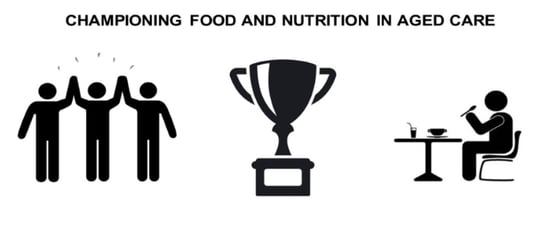Food and Nutrition Champions in Residential Aged Care Homes Are Key for Sustainable Systems Change within Foodservices; Results from a Qualitative Study of Stakeholders
Abstract
Share and Cite
Cave, D.; Abbey, K.; Capra, S. Food and Nutrition Champions in Residential Aged Care Homes Are Key for Sustainable Systems Change within Foodservices; Results from a Qualitative Study of Stakeholders. Nutrients 2021, 13, 3566. https://doi.org/10.3390/nu13103566
Cave D, Abbey K, Capra S. Food and Nutrition Champions in Residential Aged Care Homes Are Key for Sustainable Systems Change within Foodservices; Results from a Qualitative Study of Stakeholders. Nutrients. 2021; 13(10):3566. https://doi.org/10.3390/nu13103566
Chicago/Turabian StyleCave, Danielle, Karen Abbey, and Sandra Capra. 2021. "Food and Nutrition Champions in Residential Aged Care Homes Are Key for Sustainable Systems Change within Foodservices; Results from a Qualitative Study of Stakeholders" Nutrients 13, no. 10: 3566. https://doi.org/10.3390/nu13103566
APA StyleCave, D., Abbey, K., & Capra, S. (2021). Food and Nutrition Champions in Residential Aged Care Homes Are Key for Sustainable Systems Change within Foodservices; Results from a Qualitative Study of Stakeholders. Nutrients, 13(10), 3566. https://doi.org/10.3390/nu13103566






